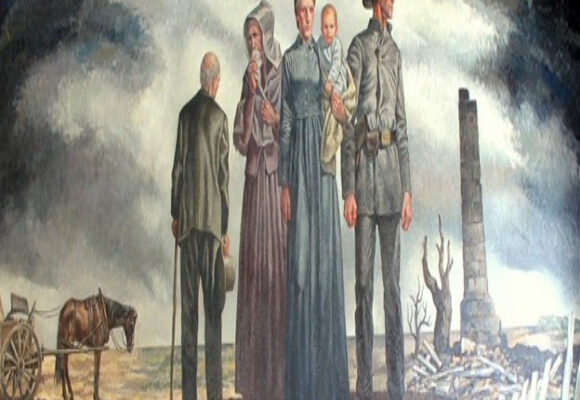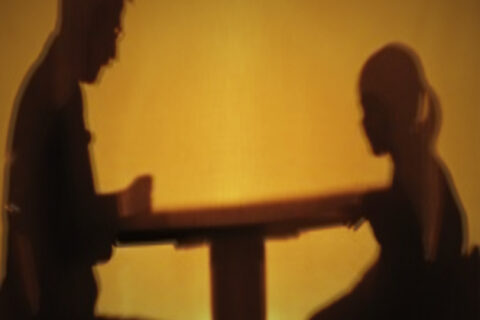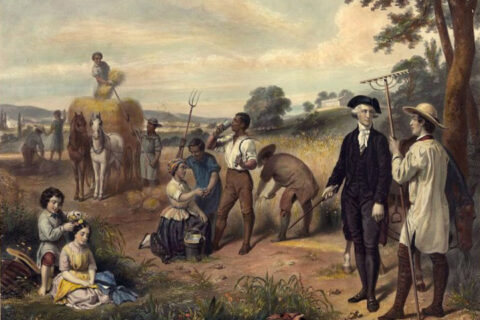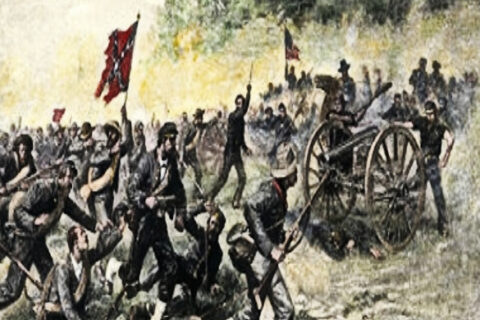This is done in remembrance of the sacrifices of our noble ancestors. See here, here, and here, for helpful insights, first-hand sources, and historical guidance.
Below the fold is my story I recently wrote of how the confluence of certain events ultimately led me to the knowledge of the truth regarding our long-established custom of ushering in each successive New Year, centered around preparing and serving “animal food” as the main dish. It was originally conceived and penned with the exclusive interest of my immediate circle of influence in mind. I include it below for those of our readers who might benefit from some aspect of the story as well.
There was a time in the not-too-distant past when I openly scoffed and scorned the practice of ushering in the New Year with the eating of black-eyed peas, deeming the act a superstitious cult-like ritual unbecoming civilized, God-fearing Christians. A main reason for my former (and sadly mistaken) attitude towards the custom as such was that apparently no one – neither my parents nor my grandparents on either side for starters – was equipped to provide me a better explanation than the foregoing for why our family religiously performed the ritual year-in and year-out. Aunts and uncles, and other adults of influence in my young life, proved to be less than helpful by way of explanation as well.
As a child and adolescent teen, I was obliged to participate in the ritual, and did so throughout my formative years purely as an act of not-so-cheerful obedience to the wishes and directives of my well-meaning, if uninformed, superstitious, elders. Early into young adulthood, however, I began to assert my independence in this matter by way of (politely) declining suggestions and invitations to participate in a custom I had come to believe must necessarily be of infidel, and therefore sinful, origin. Strictly speaking, I wasn’t altogether wrong in that assessment either, since the only explanations I was ever afforded as an inquisitive youngster were the “for good luck and prosperity” explanation, and the ‘because our family has always done it’ one. The former reeks of heathen superstition minus historical context; the latter of going through the motions for the sake of it, not unlike reciting an oath of allegiance, without understanding a word or phrase thereof.
The veil first began to lift from my eyes in this matter when I happened upon a post at a now-defunct pro-Southern blog (Vanishing American II) broaching the topic in 2018. Embedded within the body of the post was a link back to an article hosted by Identity Dixie. Incidentally, this was also my first introduction to ID, which was a very new site at the time.
The ID article in question was posted under Tex Wood’s byline. Wood’s article initially piqued my interest due entirely to the fact that, rather than the less-than-adequate and equally non-convincing explanations already mentioned, the author insisted in his article that there was in fact a deeper, uniquely Southern, significance and meaning behind the custom than apparently superstitious incantations somehow assuring good luck and satisfying greed for one more year; or of going through the motions purely out of habit and for its own sake – ‘having the form of sacred custom, but denying the power thereof.’
I was intrigued by Mr. Wood’s claim for several reasons, but most notably because it marked the first time in my life anyone had ever offered up any plausible answer to my decades-long question, “for what good reason are we doing this?,” that made any kind of sense to me. Additionally, by that date I had personally read a sizable number of “Civil War” diaries and journals penned by patriotic Southern women of the period, wherein they described in part, yet in vivid detail, “how [they survived] in the last days of the Confederacy,” and suchlike.
The contents of Mr. Wood’s article served to remind me in part of a theme common to virtually all of the above-mentioned journal entries jotted down for posterity’s sake after a certain date. Namely their oddly “coincidental” references to an all-too-common dependence on cornfield peas/cow peas/black-eyed peas for staving off sure starvation when virtually no other foodstuffs were readily available to them in quantities necessary to their sustenance. I was also keenly aware that these journal entries bearing witness to “starvation diets” were too disconnected by distance and means of intercourse, while simultaneously too closely connected by date and circumstance, to admit of coordinated effort in their agreement and synchronicity.
At some inflection point while contemplating the implications of this information, the light suddenly burst through the fog of disjointed thought, and I instantly knew what was to be my task in this matter going forward – I was to revisit those old diaries and “wartime journals” I had long-since relegated to the dusty “read” pile, and to highlight those more or less numerous entries in each relevant to the subject at hand. The next step was of course to write an article or series of articles liberally infused with these references and submit it/them for broader dissemination at ID. This is a tedious, time-consuming process similar to that, you will recall, Commander Maury supervised in Dusty Old Log Books.
Fast-forwarding six years to the current date, I must admit slight embarrassment for having yet to satisfactorily complete my self-appointed task. It might well be that I shall never complete it to my own satisfaction. I flatter myself that what I have been able to do at very least, is to vindicate Tex Wood’s veracity per the subject and subject matter under discussion, “by a preponderance of the evidence and beyond a reasonable doubt,” as I wrote in Manna of the Southland. It turns out that Tex was right in his assertion all along; there is in fact a much more meaningful, and I daresay more civilized and Christian (but I repeat myself), reason for which the tradition organically formed among Sons and Daughters of the Confederacy, ushering in each successive New Year, feasting on “cornfield peas,” and pork and greens of various sorts; and let us never forget the appetizing odors of Mrs. Trenholm’s tasty hoe cakes in that listing!
I will add in closing that, although I’ve focused to date on the wartime journals authored by patriotic Southern women as the main source in which to find references to the “starvation diets” the enemy’s fiendish “Total War” policy cruelly inflicted on them and their children, other reliable, if unlikely, sources bearing written witness to the same are the journals of Yankee POWs held captive in Southern prisons during the latter part of the war. Albeit their witness overall is tainted by bitterness towards all things Southern for what they claimed till their dying days was intentional cruelty inflicted upon them by the Confederate government in general, and their captors and overseers more directly. But that’s another subject for another day.
Let us bring in this and every New Year to follow like it’s 1865.







Bring in every year like it’s 1865? Good advice, and a reminder of one reason why this site is so valuable as a corrective for the mind control and falsehoods we’re exposed to daily.
“Thus saith the LORD, Stand ye in the ways, and see, and ask for the old paths, where is the good way, and walk therein, and ye shall find rest for your souls.” – Jeremiah 6:16
Amen to that! Your comments are valuable and always appreciated, Sir. And thanks for posting the passage from Jeremiah in connection with what I wrote.
Tomorrow, I’ll be eatin’ black-eyed peas, cornbread, turnips and fried pork chops, drinkin’ sweet tea, and listenin’ to late great Southrons….Lester Flatt and Earl Scruggs and The Foggy Mountain Boys, and Doc Watson….long live Dixie!
Excellent, Sir. I might put Tony Joe White (“Polk Salad Annie”) on replay for musical entertainment, while I strive to do something useful and productive tomorrow, I don’t know.
I got my black eyed peas on the boil, Happy New Year to you Mr. Morris and Happy New Year to all here at ID.
I hope you have a wonderful New Year, sir. We brought the New Year in at the stroke of midnight, as is our family’s custom; my wife and two of our girls worked hard for several hours preparing the meal, which included back-eyed peas of course (stewed with bacon), delicious hoe cakes, soft fried potatoes and spinach. Every year or two nowadays, we lose a participant to marriage and the startup of their own families. Which is a good thing, don’t get me wrong. Problem is, my wife seems to be having a hard time accounting for those losses when she prepares a special meal. So it was a feast: not a bad problem to have, if you know what I mean.
God bless and keep you, sir. Thanks for the comment.